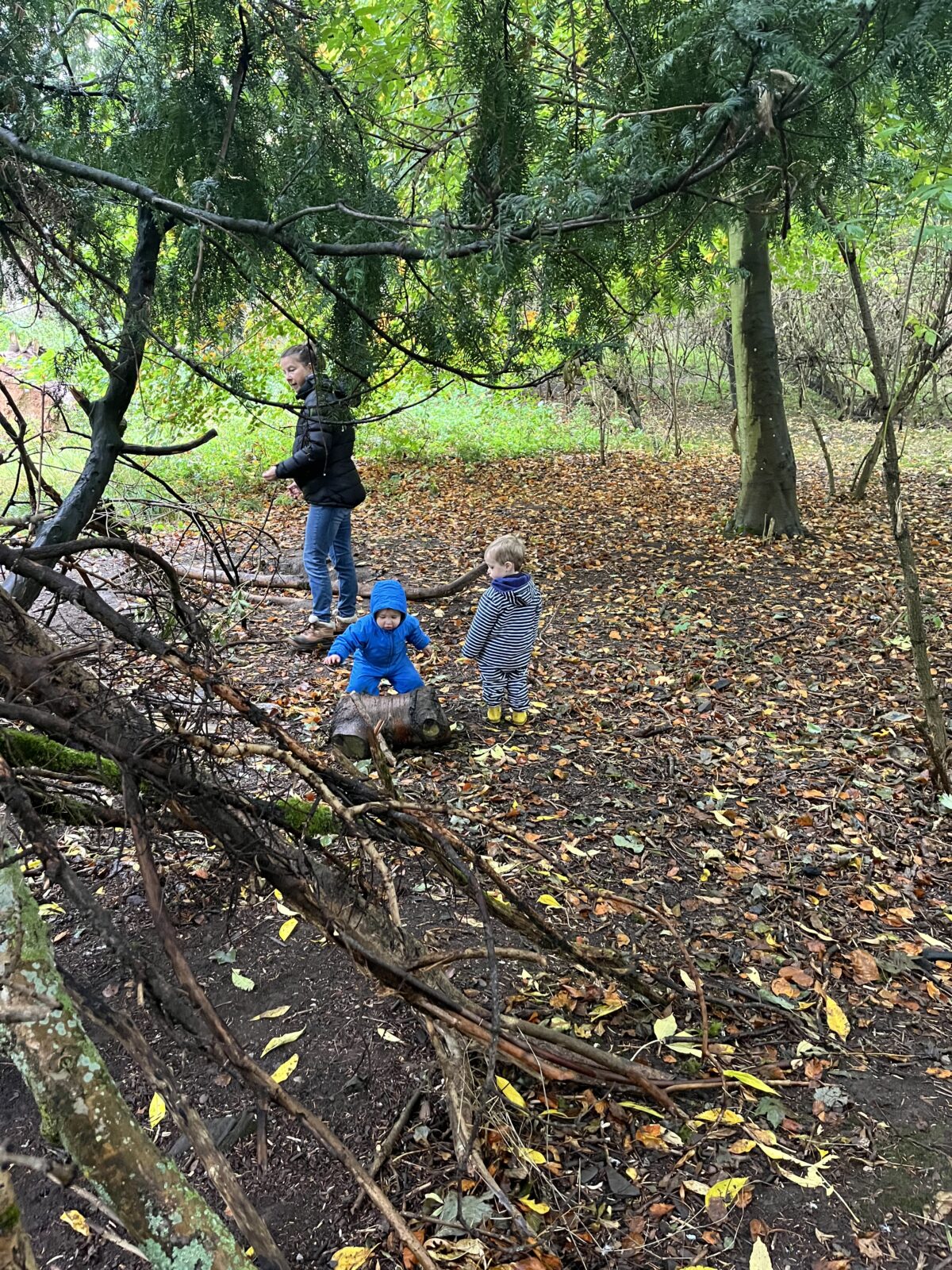This month, as Spring blossoms across the lands of Scotland, we bring you the stories of two Outdoors Learning programmes that Story Weaver Joana Avi-Lorie had the pleasure to attend and get involved with.
They are an exciting time for children and families to engage and interact with their local wild spaces and creatures. They are an opportunity to witness and observe local environments and to understand better and value biodiversity. And they are also a space to share joy, to soothe, and to see (and imagine) the stories of what is happening alongside the lives of humans.
Do you have this sort of activity for children in your local area? If yes, and you are a parent/guardian, have your children joined one? If not, would you like to have one? Or perhaps, start one with your local community?
Hear the beautiful stories of Angus and Chris, who run and host Earth Calling in Edinburgh and Muddy Buddies in Dunbar.
Angus Egan has been running Earth Calling for 26 years! A nature conservationist who travelled the world marvelling at its natural landscapes, Chris wanted children to become familiar with their local wild spaces, how they are and how they work. Also, he wanted to introduce different points of view – closer to the ground, high on top of the trees, inside the trunks or under a rock. Now, around 350 children from P3 to P7 around the City of Edinburgh can enjoy this after-school wildlife learning club.
The Earth Calling team keeps a positive spin of nature appreciation for their activities. Yes, they will discuss changes to the climate and landscape and human intervention, but they don’t follow a particular agenda. It all depends on what the group finds when they go explore their local parks, woodlands, meadows, rivers, hills and beaches.
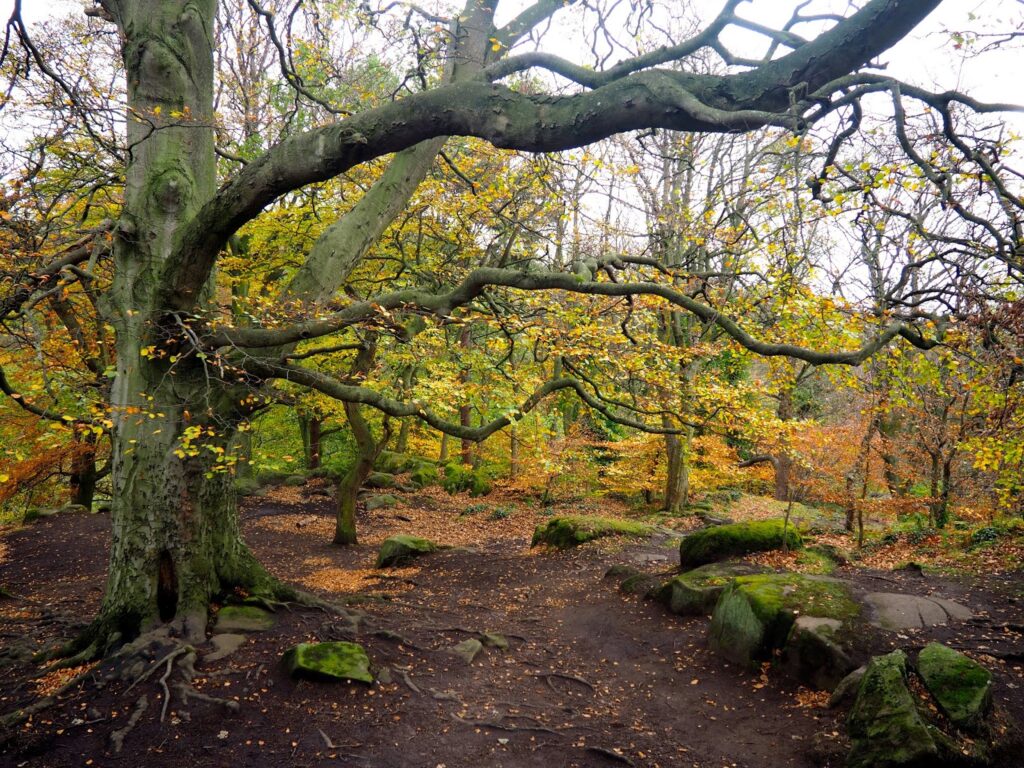
Angus calls it ‘teaching without teaching’ by showing what is there and what is happening as it is. And whatever captures the attention of the group, they investigate. They might follow tracks or lay down listening to bird songs.
It is mostly a time for roaming, observing, contemplating and investigating. But they might also engage in some interventions such as cleaning litter and the removal of invasive species that are harming the health of the places.
One of the places the children explore is the Corstorphine Woods, a thousand-year-old forest in the North of Edinburgh. The woods are struggling with invasive species like the Salmonberry and the Rhodendron Ponticum. These species take up too much space and resources, displacing the native flora and therefore having a negative impact on the balance of biodiversity. It’s not their fault – they are just trees doing their thing to survive – but it is a serious problem, and the children are aware of this. They have fun removing the invasive species, especially because it’s something they usually ‘shouldn’t do’ (plucking out plants).
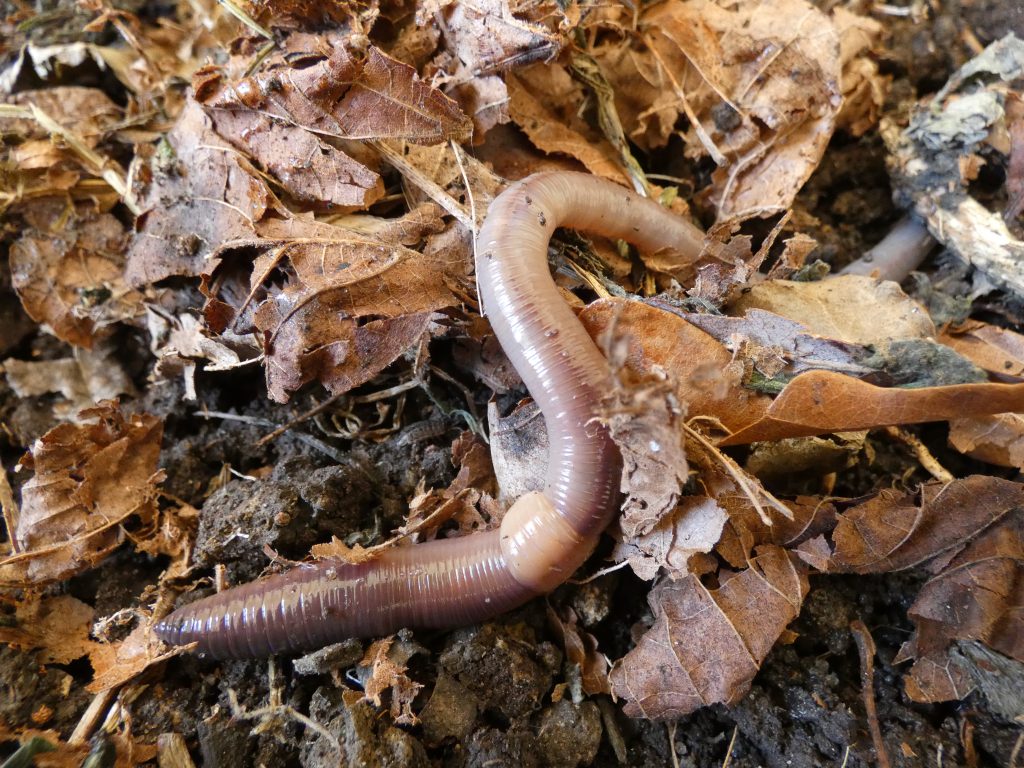
The educators/guides must be careful to contextualise the removal and killing of creatures for the health of the local ecosystems. Another example is the New Zealand flatworm, an invasive worm which preys on the native earthworm. To kill these worms effectively, they have to be stepped on and burned and the children get curious and even excited at the event. But Angus reminds them that we should not be excited for the death of other creatures, and that just like the trees, the flatworm did not decide to come here and cause problems and deserves to be treated with respect even when we have to kill them.
Muddy Buddies in Dunbar involves less roaming and more playing and story time. This is a regular outdoor playgroup for pre-school children and their carers run by Chris Yule. They gather around the fire in a clearance at the edge of the Lochend Woods and Chris and Jo put together a craft and hammocks in the trees.
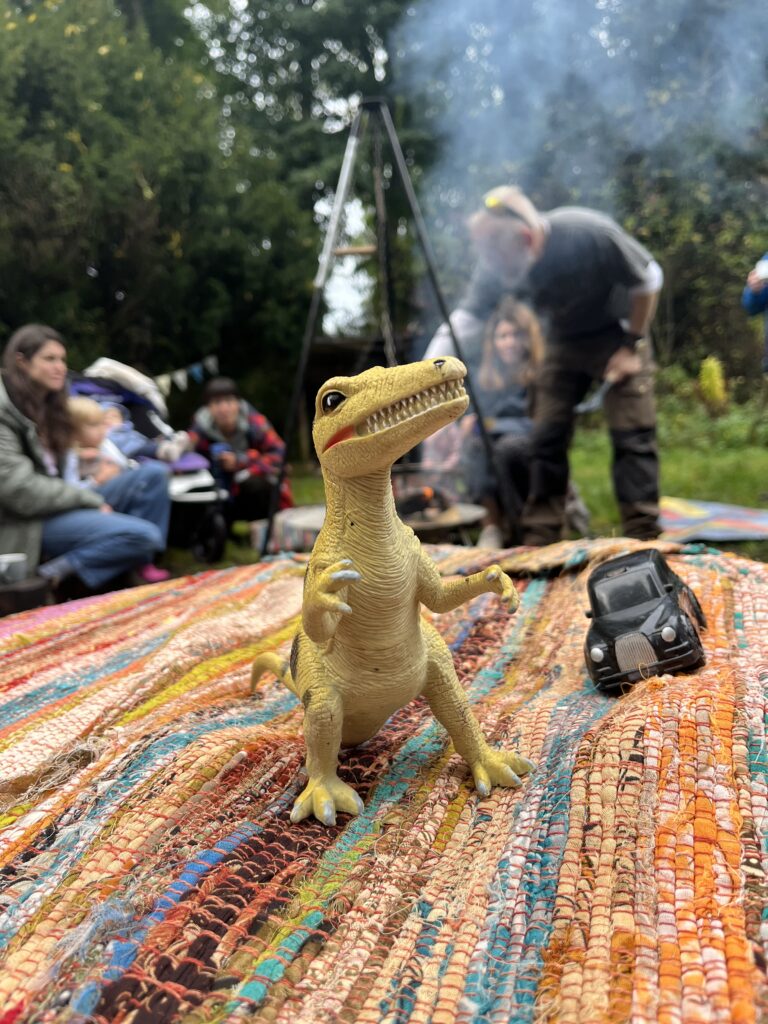
Just as the name suggests, things get muddy quite fast. The children are encouraged to safely play with the mud, leaves, trunks, sticks and stones and get used to the textures of the natural world. The older children and the parents/carers can also learn from Chris’s deep knowledge of the place. He has seen many of the trees and bushes around the clearance (called the Gathering Place) grow and he knows the species of animals that feed and take shelter in them.
After a bit of play, everyone sits by the fire for a bowl of porridge, cooked to the rhythm of a story or song. Some littlest ones drift into their naps, cosy in their mothers’ arms. Others, like my son, get in the queue for seconds with a red mouth from the delicious berries. Most of the families are local and regular but Muddy Buddies works as a drop-in playgroup for anyone based in or visiting Dunbar to join.
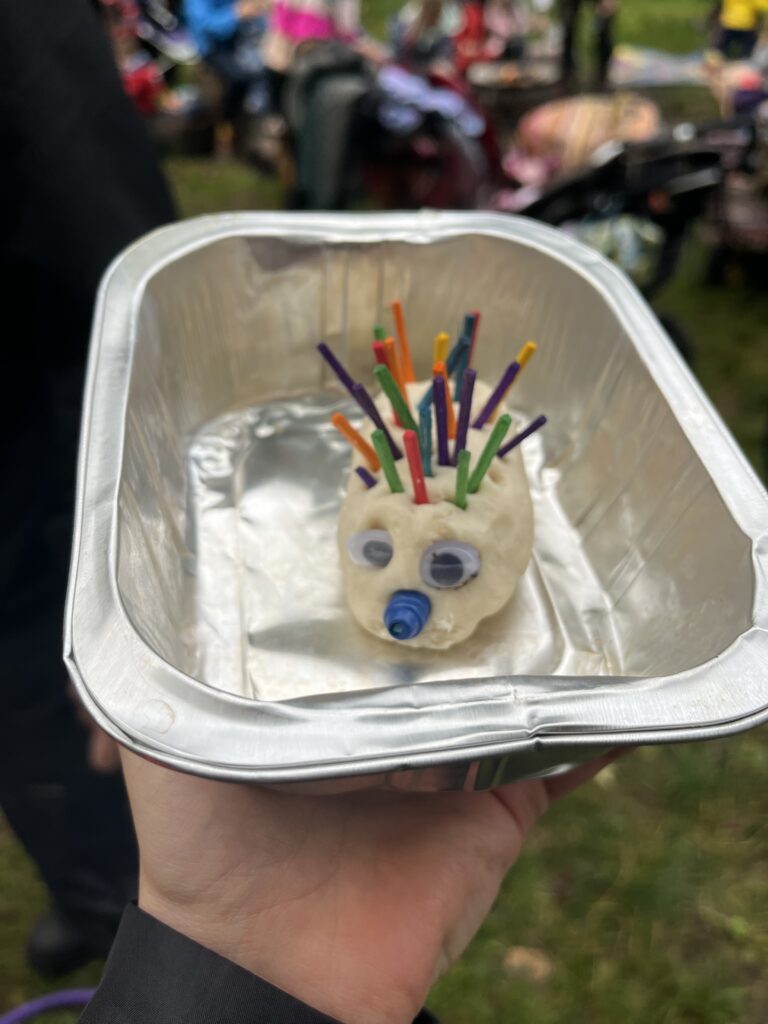
Angus and Chris are both lively and warm characters. They share a passion for outdoor learning and creating fun spaces for children to enjoy themselves in nature, but they also share something else. They know that children are the human leaders of tomorrow and they hope to nurture in them the love and respect for the wild places. So, when it comes to their time of being decision-makers and stewards of nature, they will value and protect it. For all the amazing species that populate our beautiful unique planet and for all humankind. Or even if just for the places and people they love and who loved them too.
by Joana Avi-Lorie

